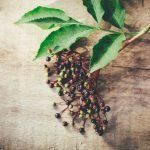Supporting Research for Homeopathic Prophylactic Treatment for Seasonal Flu
In Brazil, homeopathy has been increasingly incorporated into the public health arena as a low cost and effective method of delivering care since 2006. Because homeopathy has been written into national policy, research on its effectivity has been an increasing priority. In a recent study, homeopathic prophylactic treatment for influenza virus showed a significant decrease in symptomatic episodes, as well as symptom duration during seasonal flu outbreaks(1).
The clinical trial was initiated after an in vitro study showed that homeopathic nosodes (homeopathic preparations using live microorganisms), stimulated macrophage cells, inducing an increase in TNF-a secretion(2). The viral organism used in the clinical study was H3N2 influenza virus A (A/Victoria/3/75). The study was conducted by the Brazilian Public Health System (Rio de Janeiro, Brazil), and included 600 children(1).
In this clinical trial, two different homeopathic medicines, both classified as biotherapies, were tested: the first one was a biotherapy prepared from the intact influenza A virus sample (InfluBio); the second was a homeopathic complex traditionally used for the prevention of acute respiratory infections (Homeopathic Complex). Each test solution was administered twice a day, for 30 days, in April (pre-flu season). The dosage applied was 1 drop/year of age, diluted in a tablespoon of filtered water. These groups were compared to age-matched placebo group. All three groups were followed for one year.
Approximately a third of each the test group participants experienced episodes of flu symptoms, however both homeopathic groups showed significantly less episodes of flu-like symptoms than the placebo group. Of the 49 placebo children, 94% experienced 3 or more episodes of flu symptoms, versus none of the homeopathic group, which showed over 90% only experiencing a single episode over the follow-up year.
These studies support the use of homeopathic nosode preparations for the prophylaxis of influenza virus.
References:
1. Camila Monteiro Siqueira, et al. Homeopathic medicines for prevention of influenza and acute respiratory tract infections in children: blind, randomized, placebo-controlled clinical trial. Homeopathy, 105 (2016), pp. 71–77
2. C.M. Siqueira, B. Costa, A.M. Amorim, et al. H3N2 Homeopathic Influenza Virus Solution Modifies Cellular and Biochemical Aspects of MDCK and J774G8 Cell Lines. Homeopathy, 102 (2013), pp. 31–40
 Node Smith, associate editor for NDNR, is a fifth year naturopathic medical student at NUNM, where he has been instrumental in maintaining a firm connection to the philosophy and heritage of naturopathic medicine amongst the next generation of docs. He helped found the first multi-generational experiential retreat, which brings elders, alumni, and students together for a weekend campout where naturopathic medicine and medical philosophy are experienced in nature. Three years ago he helped found the non-profit, Association for Naturopathic ReVitalization (ANR), for which he serves as the board chairman. ANR has a mission to inspire health practitioners to embody the naturopathic principles through experiential education. Node also has a firm belief that the next era of naturopathic medicine will see a resurgence of in-patient facilities which use fasting, earthing, hydrotherapy and homeopathy to bring people back from chronic diseases of modern living; he is involved in numerous conversations and projects to bring about this vision.
Node Smith, associate editor for NDNR, is a fifth year naturopathic medical student at NUNM, where he has been instrumental in maintaining a firm connection to the philosophy and heritage of naturopathic medicine amongst the next generation of docs. He helped found the first multi-generational experiential retreat, which brings elders, alumni, and students together for a weekend campout where naturopathic medicine and medical philosophy are experienced in nature. Three years ago he helped found the non-profit, Association for Naturopathic ReVitalization (ANR), for which he serves as the board chairman. ANR has a mission to inspire health practitioners to embody the naturopathic principles through experiential education. Node also has a firm belief that the next era of naturopathic medicine will see a resurgence of in-patient facilities which use fasting, earthing, hydrotherapy and homeopathy to bring people back from chronic diseases of modern living; he is involved in numerous conversations and projects to bring about this vision.










